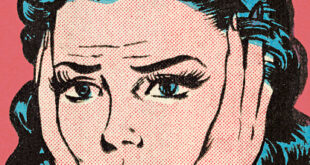Steve Sailer
VDARE
June 19, 2015
In recent years, the Eye of Soros has been bored with racial disparities in public school teacher hiring, but that grace period may be coming to an end. From the New York Times:
Tough Tests for Teachers, With Question of Bias By ELIZABETH A. HARRIS JUNE 17, 2015
Students are not the only ones struggling to pass new standardized tests being rolled out around the country. So are those who want to be teachers.
Concerned that education schools were turning out too many middling graduates, states have been introducing more difficult teacher licensing exams. Perhaps not surprisingly, passing rates have fallen. But minority candidates have been doing especially poorly, jeopardizing a long-held goal of diversifying the teaching force so it more closely resembles the makeup of the country’s student body.
“This is very serious,” said David M. Steiner, dean of the School of Education at Hunter College and a former New York State education commissioner. “It reflects, of course, the tragic performance gap we see in just about every academic or aptitude test.”
On a common licensing exam called Praxis Core, a new test given in 31 states or jurisdictions that was created to be more rigorous than its predecessor, 55 percent of white candidates taking the test since October 2013 passed the math portion on their first try, according to the preliminary data from the Educational Testing Service, which designed the exam. The passing rate for first-time African-American test takers was 21.5 percent, and for Hispanic test takers, 35 percent. A similar gap was seen on the reading and writing portions.
So the white-black gap here is just under one standard deviation, the equivalent of a 14 point gap on an IQ test. La Griffe du Lion calls that the fundamental constant of sociology.
In New York, which now has four separate licensing tests that candidates must pass, an analysis last year of the most difficult exam found that during a six-month period, only 41 percent of black and 46 percent of Hispanic candidates passed the test their first time, compared with 64 percent of their white counterparts.
However, the white-black gap here was a little under 9 points, less than 0.6 standard deviations on the IQ scale where the mean/median is 100 and the standard deviation is 15. Of course, teacher applicants are generally drawn from a fairly compressed range of college graduates.
A federal judge is now weighing whether the test is discriminatory. Because of complaints from education schools that students have not had enough time to adjust, as well as concern about the impact on minorities, at least two states — New York and Illinois — have already postponed or loosened some of their new requirements. …
Racial disparities have been seen on teacher licensing exams for years. They have become more pressing as states add tests or make them harder to pass, part of a national effort to weed out the least able candidates, who often wind up teaching the poorest students.
“Teachers who are not themselves well educated are not going to go on to educate their future students to the levels that we need,” said Kate Walsh, the president of the National Council on Teacher Quality.
But while the number of minority teachers has doubled since the late 1980s, according to an analysis of federal data by Richard M. Ingersoll, a professor of education and sociology at the University of Pennsylvania, the teaching force remains almost monochromatic: The federal Education Department has said that more than 80 percent of public school teachers are white.
For the first time, minorities accounted for more than 50 percent of the nation’s public school student population this academic year, according to government estimates. Though evidence is still sparse, some studies suggest that having a teacher of the same race may be beneficial for students.
The reason “evidence is still sparse” is because until very, very recently, social scientists were all flaming racists. Granted, the 1964 Civil Rights Act budgeted $1 million for the Coleman Report to study this kind of thing, but 1964 was only … let’s see … 2015 minus 1964 … carry the one … no, that’s the other thing … well, anyway, it wasn’t very long ago. So, real soon now Science will prove whatever it is we want to be true.
Licensing tests have been challenged in the last couple of decades in several states, with varying degrees of success. In the New York case, Judge Kimba M. Wood of Federal District Court in Manhattan has already ruled that two exams previously used in the state were discriminatory. The central question in these cases is whether the skills measured by the test are so crucial to the job of being a teacher that they outweigh the disparate impact on minority candidates. …
The general pattern relating to disparate impact enforcement is that our society can’t afford to impose this logic on all parts of society at once. For example, back five or six years ago when liberals were all worked up over not enough black firemen, I frequently pointed out that Silicon Valley seemed to be immune to denunciations for discrimination. Eventually, that changed and right now the SJWs aren’t interested in fire departments and are obsessed with Silicon Valley. But ten years from now the SJWs might be all worked up over, say, Hollywood film crews and sullenly aware that you can’t just hire a bunch of Michael Browns to write code.
So what goes around, comes around. It helps if you can’t remember the past.
Leslie T. Fenwick, the dean of the Howard University School of Education, says that while she supports licensure assessments, she makes a case in her coming book, “Jim Crow’s Pink Slip,” that they have a sinister history. She says that certification exams, particularly in the Southeast, were part of a tool kit used to force black teachers out of the profession after the Brown v. Board of Education decision mandated desegregated schools.
And that’s your daily dose of Historical Racism Porn.
 Daily Stormer The Most Censored Publication in History
Daily Stormer The Most Censored Publication in History



